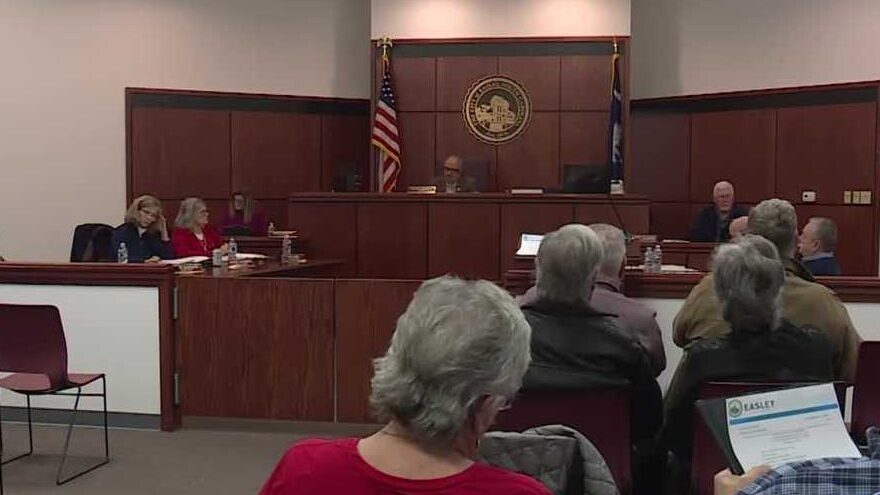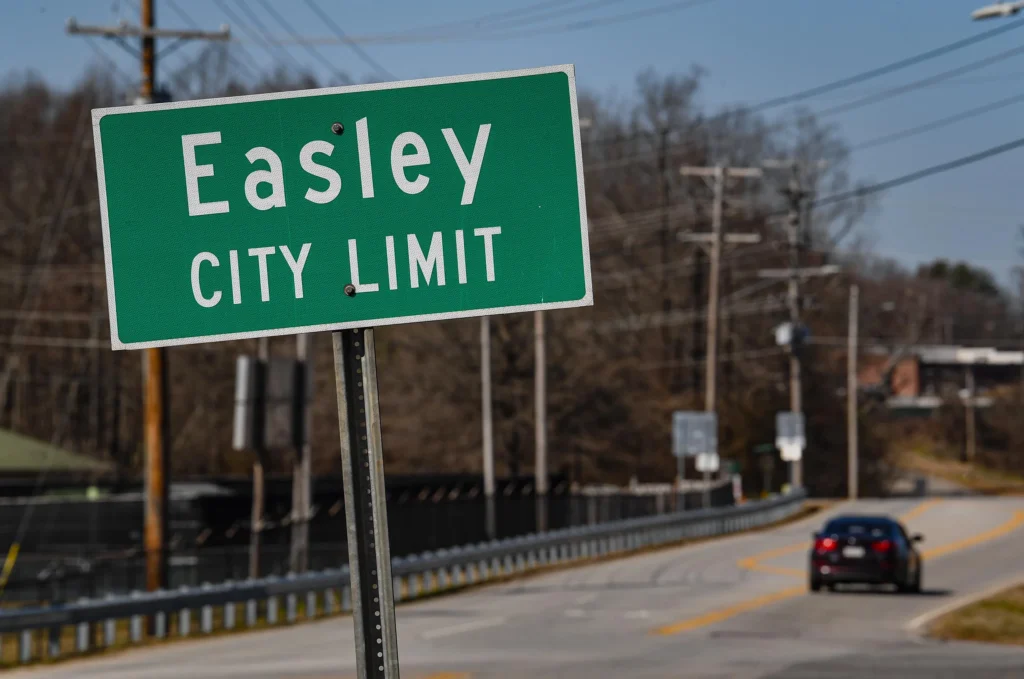With the recent growth of the city, many residents are faced with issues like congested streets, road maintenance, overcrowded schools, and more. Some people hope that the official chosen in the special election for Easley’s Ward 4 City Council coming up on April 25, and the elections this fall, will be able to help with these.
While it’s an important role, we often think that city council members have more power and influence than they really do in Easley. It’s necessary to review what their duties and responsibilities are, and to discuss what candidates have the authority to realistically promise their constituents under our form of city government.


The form of government in Easley
The Municipal Association of South Carolina outlines the Forms and Powers of Municipal Government in their guide.
We have a Mayor-Council municipal form of government, and we have a “Strong” mayor form where the mayor runs the daily operations. In the strong-mayor and council form, the mayor acts as real chief executive of the city or town, with the prerogative to veto actions of the council.
The mayor may also appoint or remove departmental heads, officially represents the city on the state, national, and international levels, and enforces city laws and ordinances. The city council gives up a lot of its power and influence in the strong-mayor form of government.
SC Code of Laws for Municipalities
The duties of the City Council
The actual duties of City Council members are to attend meetings where they vote for or against issues brought to the City.
The City Council is charged with voting on all Ordinances, Resolutions, which includes the City’s annual budget.
They approve the budget drafted and proposed by the Mayor.
They are charged to vote on the City Administrator, and Assistant Administrator, City Attorney, City Clerk, the City Judge and Assistant Judge.
They represent the city at many ceremonial functions.
They can lend experience to discussions, and can join in discussions of issues influencing our community.
Most importantly, they try to represent the wants and needs of their constituents. At one time, before everyone had a computer and a camera, they acted as the ears and eyes of the community.
What the Council CAN’T do
Members of Council do not have the authority to direct the activities of any city employee however.
For instance, they cannot call a department head and tell him/her to perform any kind of work. However, they often act to identify a citizen reported need and discuss this request with the appropriate department. Usually, the department head will work with the council member to find out what the complaint is and explain the situation to them in words they can understand.
What the Council is doing when considering an annexation or a re-zoning, is looking only at the requested USE, not reviewing the the specific building or subdivision.
For instance, if they are asked to re-zone a piece of property from OI to NC as they were this month, Council is not looking at the building that will be put on the lot. They are only looking at whether the proposed use (or any of the other uses that are permitted in the Zoning Ordinance) will be appropriate.
There may be a very long time between the annexation or a re-zoning and the actual construction of a development on these lands. There are several annexations that have been zoned, but have not yet been constructed. Sometimes developers sell or scrap their original plans and build something else entirely on that land.
Currently, the City planning commission is working to update the Zoning Ordinance to decrease the density of homes in different zones to reduce the negative impact of the new developments in an area.
There is a lot of discussion about the very real problems Easley is having with road congestion, road maintenance, and overcrowding in schools. Sadly, there is very little the City Council can do about these issues apart from sending annexation, zoning, and development applications to inform the agencies that control these areas.
For example, the School District of Pickens County or SCDOT. If the agencies find the infrastructure cannot support that request, they let the city know to deny the request. This has never happened in Easley yet.
There is a specific and different process of getting development projects approved in the city. It’s important to note that while the City Counsel-members wield some influence over re-zoning and annexations, they are limited on what development projects are actually pushed through.
Much of the confusion may be due to the fact that many other growing cities in the Upstate, have a Council-Manager form of government. In this form, the elected council members work with the mayor to establish appropriate policy, and professional managers to carry out those policies. The mayor is often a member of the city council and has a more of a ceremonial role in the local government.
Greenville for example, has a City Manager who is the chief executive and head of the administrative branch. It adopted the Council-Manager form of government in August of 1976. The elected representatives in those cities have different roles and responsibilities as a result.


